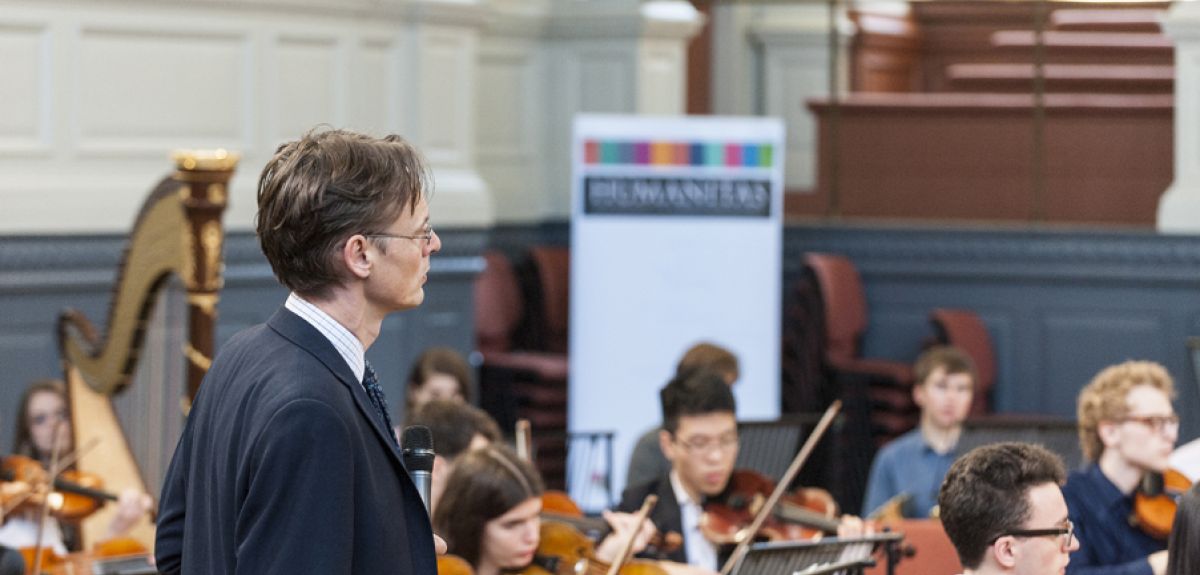
How musical theory helped Newton understand light – report on latest Humanitas lecture
Renowned tenor Ian Bostridge was in Oxford last week as the Humanitas Visiting Professor of Classical Music and Music Education.
To an audience of students, academics and interested members of the public, he gave a lecture entitled "Why Winterreise? Schubert's Song Cycle, Then and Now" and led a masterclass/open rehearsal and an all-day symposium.
In his lecture, Mr Bostridge discussed the meaning of a liberal education. He stressed the importance of both the arts and sciences and warned against judging the value of each by 'the methods of accountancy and the business school'. He told the audience: 'One of the main ways through which this ideal of liberal education works, in its vision of unconstrained but disciplined intellectual exchange, is through what one might call the circulation of metaphor, so that the most unlikely of disciplines can offer inspiration to each other. Sciences inspire the arts, the arts the sciences.
'My favourite historical example involves music. Musical metaphor has played a crucial role as midwife in the physical sciences from the time of Pythagoras. Musical theory was a crucial, if publicly underplayed, component in Isaac Newton’s understanding of light – through an analogy between the colour spectrum and the musical scale. The seven notes of the scale before the return to the octave are analogous to the colours of the rainbow – red, orange, yellow, green, blue and violet, plus the strangely superfluous indigo which made the number up to seven.
'More significantly, Newton interpreted Pythagoras’s views on musical consonance as containing the essence of the inverse square law of gravitation, his dazzling solution to the unity of celestial and terrestrial dynamics. Thus Newton, a sort of Pythagorean magus, reinterpreted the notion of the harmony of the spheres.'
A longer extract of this lecture can be found here.
Mr Bostridge has had a distinguished international recital career. His operatic recordings have won major international record prizes and been nominated for 13 Grammys. He was previously a fellow in history at Corpus Christi College, Oxford, and has received honorary fellowships from Corpus Christi College and St John’s College. He was made a CBE in the 2004 New Year's Honours.
This professorship was been made possible by the generous support of Mick Davis and was being hosted by Professor Jason Stanyek in association with St John's College. Humanitas is a series of Visiting Professorships at the Universities of Oxford and Cambridge intended to bring leading practitioners and scholars to both universities to address major themes in the arts, social sciences and humanities. Created by Lord Weidenfeld, the programme is managed and funded by the Institute for Strategic Dialogue with the support of a series of generous benefactors and administered by TORCH | The Oxford Research Centre in the Humanities.